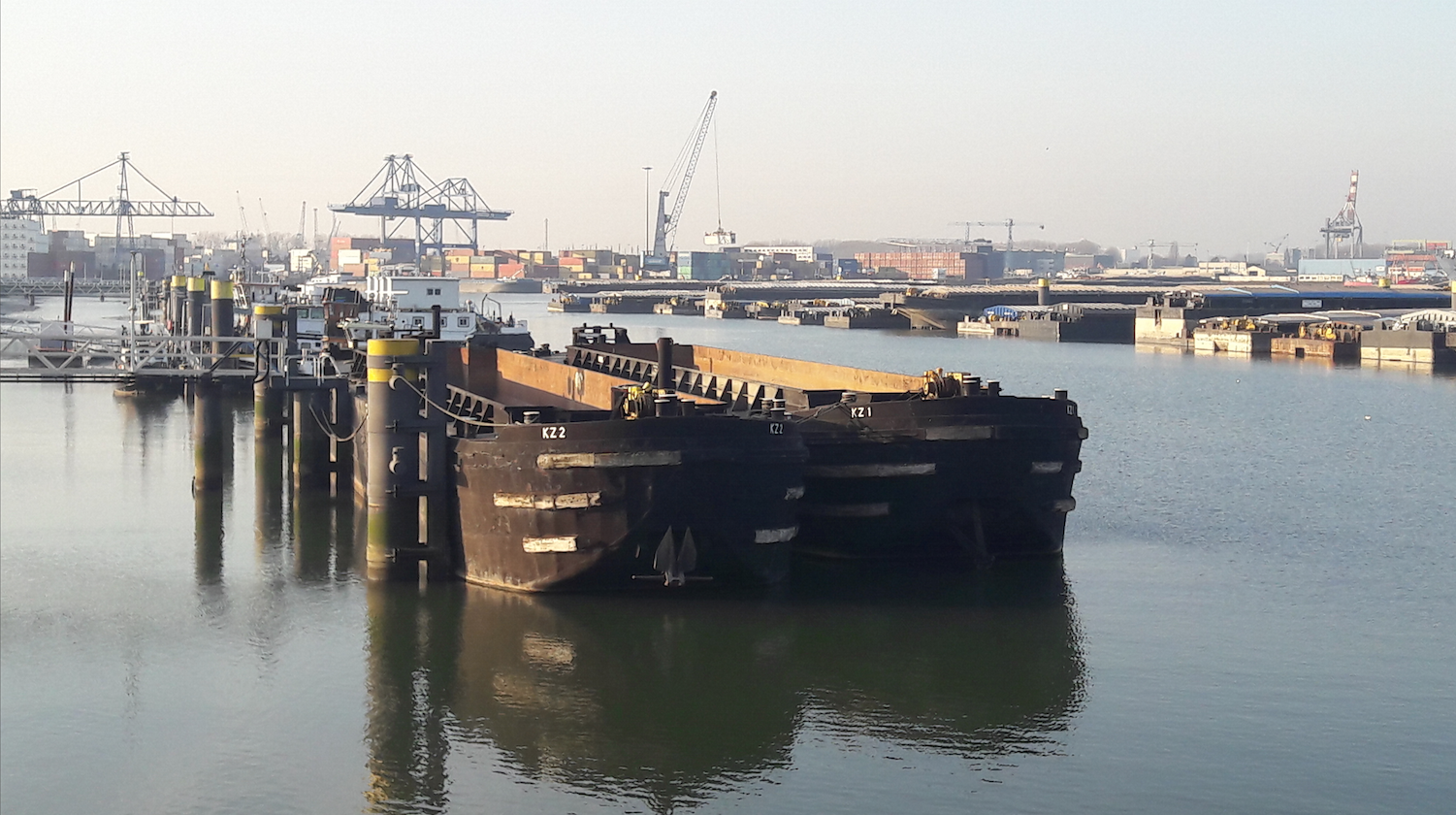
Start smart maintenance-onderzoek

Waalhaven
De Universiteit Twente en de Nederlandse Defensie Academie starten gezamenlijk smart maintenance-onderzoek. Een van de aandachtspunten is corrosie.
Het gaat om een forse uitbreiding van al lopend smart maintenance-onderzoek. “We doen al langer onderzoek op dit onderwerp, met toepassing in windturbines, spoor en maakindustrie. De focus in de nieuwe projecten ligt met name op de maritieme sector, zowel op onderhoud bij de marine, als ook bij de civiele scheepsvaart”, licht prof. dr. ir. Tiedo Tinga toe, die zowel hoogleraar is bij de UT als de Nederlandse Defensie Academie.
Smart maintenance-onderzoek
Door nieuwe methoden te ontwikkelen voor het omzetten van data naar bruikbare informatie, moet het mogelijk worden om toekomstig falen van schepen te voorspellen. Veel van de dataverwerving zal geautomatiseerd plaatsvinden. Een van de onderzoekstrajecten richt zich op corrosie, ook een veel voorkomend probleem in de industrie. Met behulp van elektrochemische metingen moet het mogelijk worden om de mate van corrosieschade te bewaken, en uiteindelijk te voorspellen. Omdat coatings in een verschillend tempo verouderen, is het nu nog lastig om precieze voorspellingen te doen.
Zie ook: ‘Maak niet alles voorspelbaar’
English translation
Start of smart maintenance research
The University of Twente and the Nederlandse Defensie Academie are launching joint smart maintenance research. One focus area is corrosion.
This is a substantial expansion of already ongoing smart maintenance research. “We have been doing research on this topic for some time, with application in wind turbines, railways and manufacturing industry. The focus in the new projects is particularly on the maritime sector, both naval maintenance and civilian shipping,” explains Prof. dr. ir. Tiedo Tinga, who is a professor at both UT and the Nederlandse Defensie Academie.
Corrosion damage
By developing new methods for converting data into useful information, it should become possible to predict future ship failures. Much of the data acquisition will be automated. One of the research projects focuses on corrosion, also a common problem in the industry. Using electrochemical measurements, it should become possible to monitor, and ultimately predict, the extent of corrosion damage. Because coatings age at different rates, it is currently difficult to make precise predictions.









